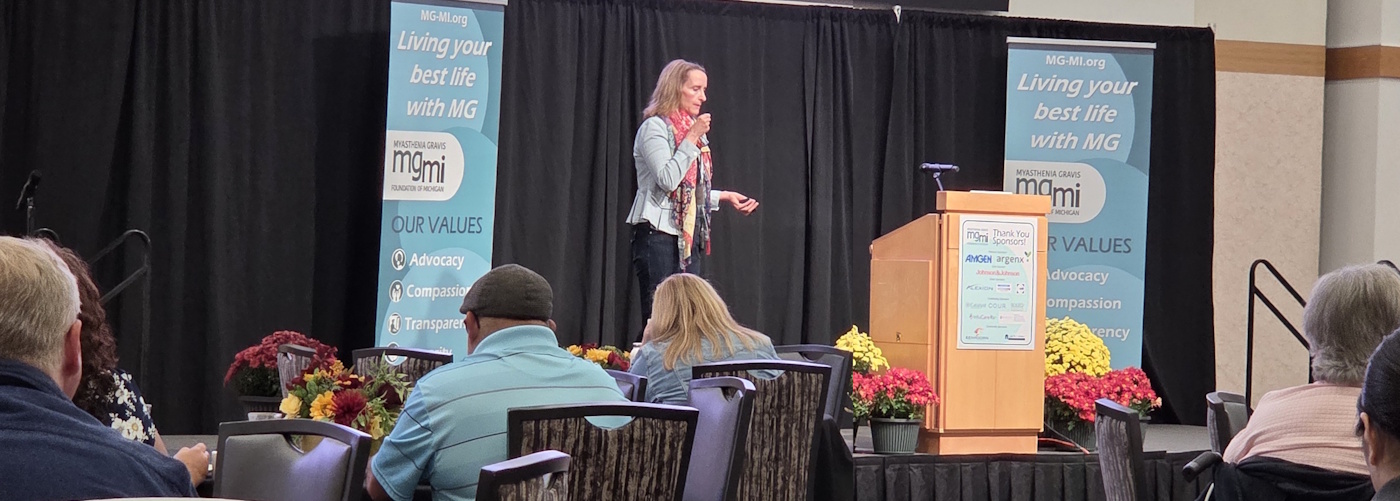






The Myasthenia Gravis Foundation of Michigan (MG-MI) was founded in 1976 to raise awareness about MG and provide resources and support to persons living with MG and their caregivers.







Due to advances in treatment, the future for a patient with MG is very bright. In some cases, MG may go into remission for a period of time when no treatment is necessary. While there is much that can be done, there is still much more to learn to better understand MG. Research is ongoing and will continue until a cure is found.